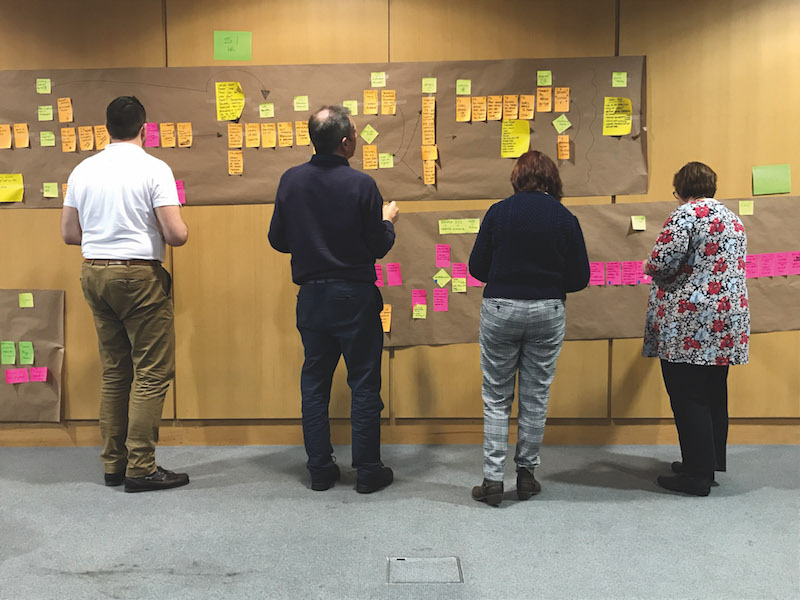How could Lean principles apply in schools?
Posted on 21st Feb 2020 in International Schools, International Education
Blake Purchase, of St Andrews Lean Consulting, explains...
A subsidiary of the world-renowned University of St Andrews, Scotland, St Andrews Lean Consulting is a process improvement consultancy with a decade of experience working with educational institutions all around the world to develop a culture of Continuous Improvement, embedding skills, knowledge, and techniques into our clients’ organisational philosophy. From the British School at Rome to Murdoch University, Western Australia, we have spanned the globe in the pursuit of improvements in capability and capacity for our clients, through workshops, formal training, and consultancy.
Having established this reputation as experts in the field, we asked ourselves an important question: why not seek to embed this way of doing things among the institutions that often directly precede the universities we have worked with: schools? If a global centre of learning such as Murdoch University can benefit from ‘improved business processes and exciting collaboration’, why can an international school not benefit in the same way? And that is the reason we are writing here. But before I discuss how Lean could be applied in a scholastic context, I had better outline what Lean is.
We describe Lean as ‘the right people continuously searching for the simplest and smoothest process, in order to meet customer needs perfectly.’ It is a philosophy that centres on the two fundamentals of Continuous Improvement and Respect for People, and the five principles of adding Value (and removing waste), Process (optimal procedures), Pull (meeting customer needs), Flow (smoothing out peaks and troughs) and Perfection (aiming to get it right first time). The culmination of these elements when embedded at an organisation, whether it be a University, college or law firm, are improvements in efficiency, quality, staff morale, internal communication and cooperation, as well as customer service. In the pursuit of these improvements, we have developed and utilised many times over the last decade the St Andrews Model.
To give two interesting examples of work undertaken, in Berea College’s historic Boone Tavern in 2016 we delivered a two-day Lean training programme consisting of an introduction to Lean, and an overview of some common tools and our eight-step model. As for the outcome, one participant provided an excellent summary, with the programme ‘changing my way of thinking and way of approaching problems forever.’ More relevant still, the British School at Rome whilst in fact a research institute, experienced many issues undoubtedly familiar to those faced in international schools. There, a very mobile, international population was the chief cause of some quite complex organisational needs, leading to staff feeling the pressure to fulfil all these as required, with the absence of a budget to employ extra staff to relieve that pressure. We went in and held an intensive three-day workshop that tackled the issues of IT renovation, re-working of financial processes and residence management. New systems were developed which relieved a great deal of pressure from staff, with 60% less time spent managing bookings and 20% less time spent on financial administration.
So, as alluded to, there are certainly specific parallels to draw between some of the institutions we have helped and international schools – smoothing out the ‘peaks and troughs’ associated with mobile populations being one - but let us face it, education institutions for the most part share a set of common functions and associated challenges, whether in finance or admissions. The processes that make up the functions are just as susceptible to waste, inefficiency build up, and the gradual emergence of suboptimal procedure.
Our tried and tested approach entails coming to your school for a Scoping session in order to establish some goals, and later engaging in the most important step of Redesign, in which we would assemble the project team to understand existing processes and create new processes, while developing skills among staff members responsible for implementation – which culminates in a sea of post-it notes. We promise, though, that it is a case of organised chaos.
So that is us, Lean, and how we could assist in a scholastic environment.
Blake Purchase is Business Development Associate at St Andrews Lean Consulting
St Andrews Lean Consulting:
https://standrewslean.com
Email: lean@st-andrews.ac.uk